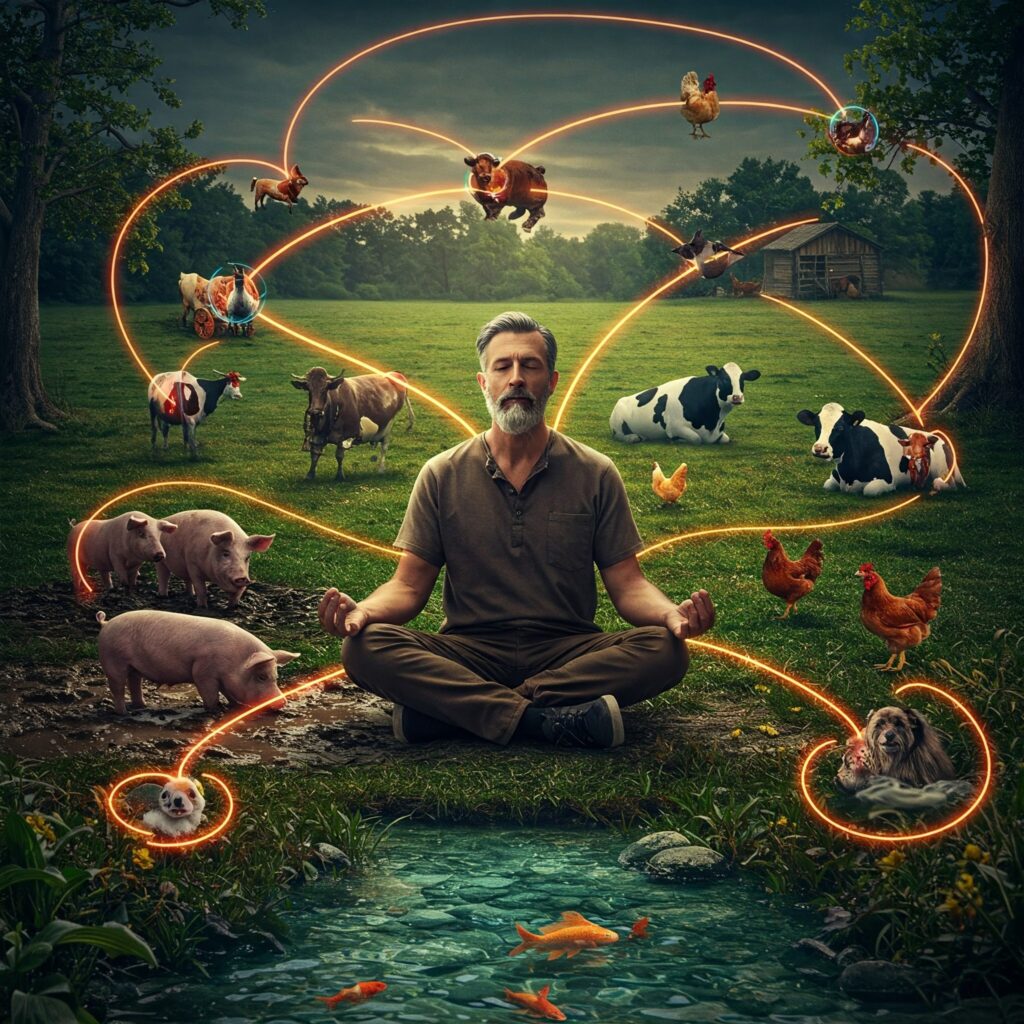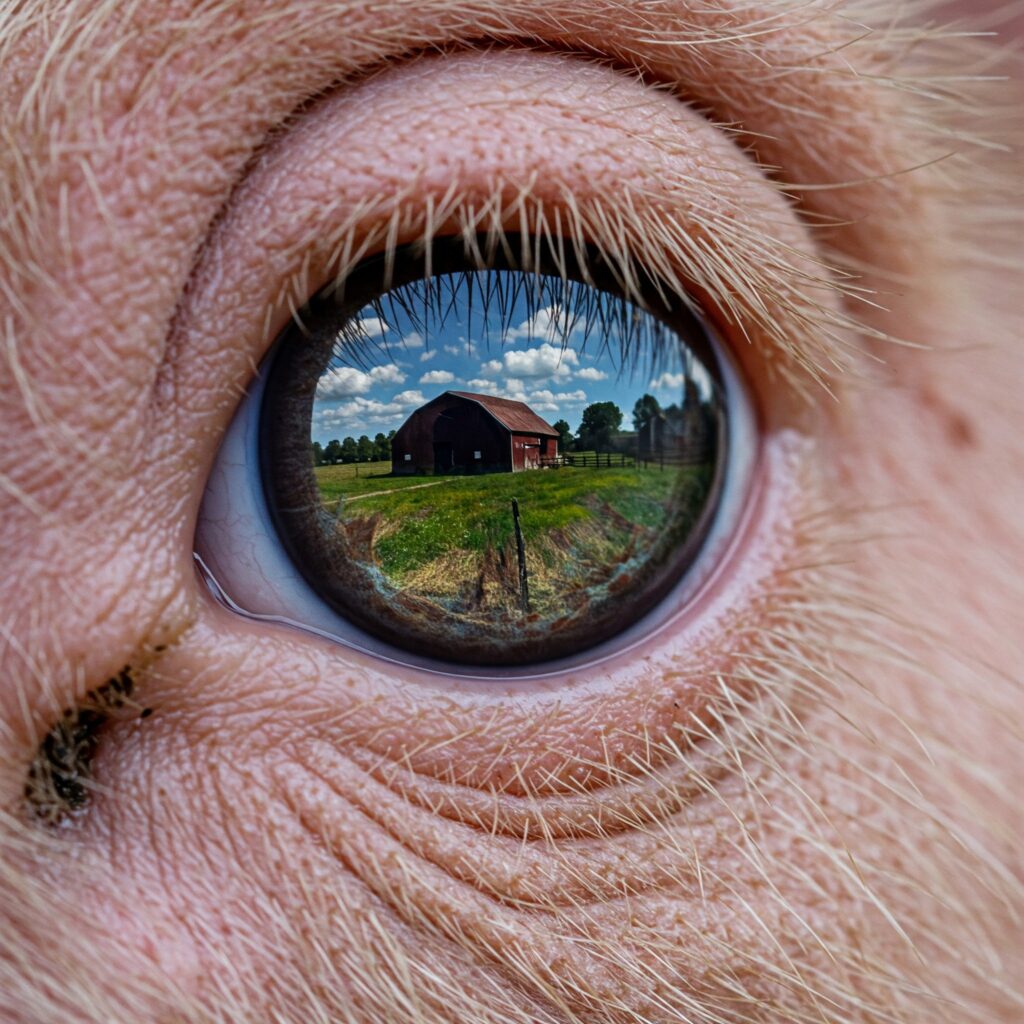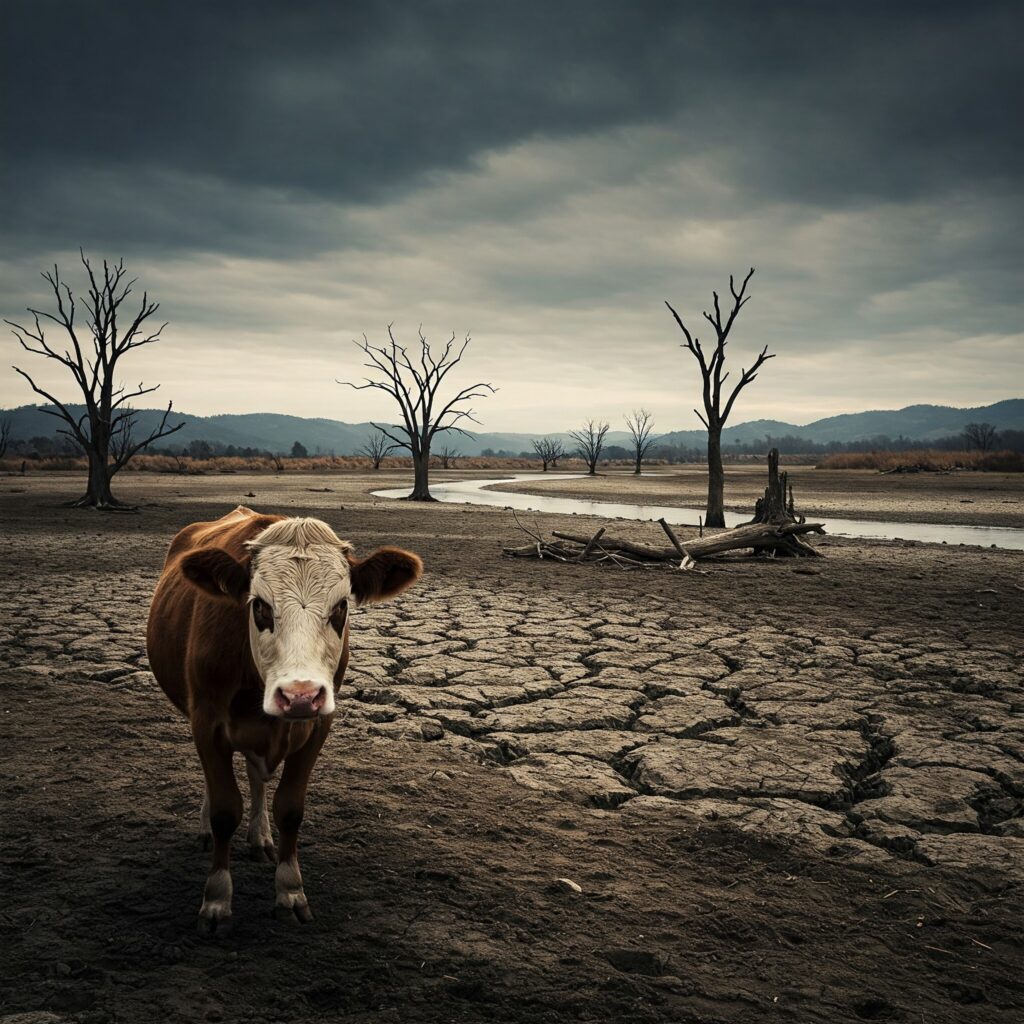There was a time when I saw animals as just food, conditioned to believe meat consumption was normal and necessary.
Yet, a quiet awareness grew within me—until one day, I could no longer ignore the truth. Animals are sentient, capable of fear and love, and their suffering is real.
This shift wasn’t just ethical; it was deeply spiritual.
I realized that to harm another conscious being was to sever my own connection with life’s unity.
As Gandhi said, “The greatness of a nation and its moral progress can be judged by the way its animals are treated.” If we seek true consciousness, how can we justify unnecessary harm?
The Non-Dualistic Perspective: No “Other,” Only One

Most spiritual traditions emphasize unity. In non-dualism, there is no true separation between self and other—only the illusion of division.
If we are all manifestations of the same consciousness, how can we justify inflicting suffering upon beings who feel pain just as we do?
Jiddu Krishnamurti once remarked, “When you call yourself an Indian or a Muslim or a Christian or a European, or anything else, you are being violent.”
Why? Because these labels create division. The same applies to how we treat other species—we create an illusion of separation to justify their suffering.
The moment we dissolve this illusion, our moral choices become clear: causing unnecessary harm to another sentient being is causing harm to ourselves.
Science Speaks: The Sentience of Animals

Scientific research overwhelmingly confirms what we often ignore: animals feel pain, have emotions, and possess complex social structures.
Studies have shown that cows form lifelong friendships, pigs display problem-solving intelligence comparable to dogs, and chickens communicate with distinct vocalizations for different threats.
In 2012, the Cambridge Declaration on Consciousness concluded that non-human animals have neurological substrates that generate consciousness, much like humans.
The pain of a mother cow as her calf is taken from her in the dairy industry is not unlike the anguish of a human mother losing her child.
The ability to suffer is not exclusive to human beings—it extends across species.
The Environmental Toll: A Silent Catastrophe

Beyond the moral argument, eating meat comes at a devastating cost to the planet. Animal agriculture is responsible for:
- 14.5% of global greenhouse gas emissions (FAO, United Nations)
- 80% of Amazon deforestation due to cattle farming
- Water depletion—it takes 1,800 gallons of water to produce just one pound of beef (Water Footprint Network)
Meanwhile, a plant-based diet significantly reduces one’s carbon footprint.
According to a study by Oxford University, a Vegan food lifestyle can reduce an individual’s carbon footprint from food by up to 73 per cent.
The Illusion of Necessity

Many believe that eating meat is essential for survival. Yet, millions thrive on plant-based diets, proving this belief false.
The protein argument? Plants provide ample protein—lentils, quinoa, tofu, and beans are nutrient-dense and sustainable.
The truth is, we eat meat not out of need, but out of habit and conditioning.
Leo Tolstoy, who renounced meat after embracing ethical consciousness, said it best: “As long as there are slaughterhouses, there will be battlefields.”
Violence begets violence, and our treatment of animals reflects our treatment of each other.
The Shift: A Call to Conscious Living
So, are they just food to you?
Or do you recognize them as fellow beings, experiencing the world in their own way?
Shifting to a plant-based life is not about restriction; it is about expansion—of awareness, compassion, and harmony with existence.
It is not merely a diet change but a spiritual awakening.
To live with integrity is to align our actions with our values, dissolving the dissonance between what we know and how we live.
The moment we step beyond the illusion of separation, we embrace the profound truth: life is not ours to take.

